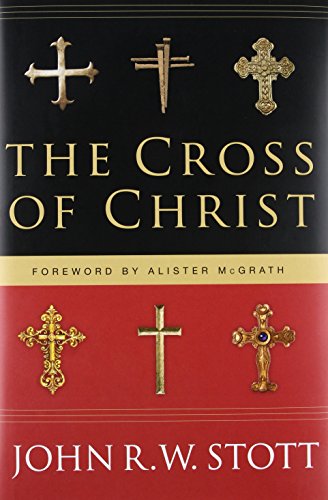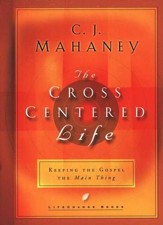Quotes about Self-Denial
The worse we realize we are, the greater we realize God’s grace is.
The Grace and Truth Paradox, 2003, Used by Permission from Eternal Perspective Ministries, www.epm.org, p. 32. Get this book!
Self is the most treacherous enemy, and the most insinuating deceiver in the world. Of all other vices, it is both the hardest to find out, and the hardest to cure.
The supreme challenge you will face in making Christ-honoring, biblical changes is dying to self. The biblical perspective concerning “self” is exactly opposite to what the wisdom of this world proclaims.
Self-Confrontation Manual, Lesson 9, Page 1, Used by Permission of the Biblical Counseling Foundation.
Hence that dread and amazement with which as Scripture uniformly relates, holy men were struck and overwhelmed whenever they beheld the presence of God. When we see those who previously stood firm and secure so quaking with terror, that the fear of death takes hold of them, nay, they are, in a manner, swallowed up and annihilated, the inference to be drawn is that men are never duly touched and impressed with a conviction of their insignificance, until they have contrasted themselves with the majesty of God.
At each stage of [spiritual] growth, more self-denial is required, more painful blows to self, more reckless decision to serve the Lord Christ with consequent abandonment of one’s own life.
The Shadow of the Cross – Studies in Self-Denial, 1981, p. 25, by permission Banner of Truth, Carlisle, PA.
Your Master’s life was dominated by a cross. He has called you also to a life with a cross. This clear gospel note is so easy to forget in flabby Western society. With a great chorus of custom, advertisement and temptation this world is beckoning you to a life of self-indulgence. Your flesh is drawn to that appeal, and will fall in with the world’s suggestions. But the Lord of glory has called you to a life of self-denial, to a cross.
The Shadow of the Cross – Studies in Self-Denial, 1981, p. 20, by permission Banner of Truth, Carlisle, PA.
Bearing a cross is an elaboration of Christ’s demand for self-denial. Bearing a cross is every Christian’s daily, conscious selection of those options which will please Christ, pain self, and aim at putting self to death.
The Shadow of the Cross – Studies in Self-Denial, 1981, p. 25, by permission Banner of Truth, Carlisle, PA.
It is this most obvious aspect of our Lord’s teaching which has been forgotten or ignored by modern evangelism. Anxious to bring sinners to life, peace and joy in the Lord, evangelists have failed even to mention that Christ insists upon denial of self at the outset. Having failed to pass on our Lord’s requirement, and forgetting it themselves, evangelists have never questioned whether their “converts” with self-centered lives are true followers of Christ. Assuming that it is possible for a man to be self-indulgent and yet heaven-bound, Bible teachers look for some way to bring ego-centric men to a higher spiritual plane. Then self-denial is taught as the requirement for a second work of grace. But Luke 9:23-24 shows that unless a man lives a life of self-denial, he has not received a first work of grace.
The Shadow of the Cross – Studies in Self-Denial, 1981, p. 21-22, by permission Banner of Truth, Carlisle, PA.
Self-denial is a practice which lies very near to the heart of true religion. Without its exercise there can be no conversion to Christ. Qualities most basic to a Christian frame of heart – notably humility and meekness – would dissolve without its active expression.
The Shadow of the Cross – Studies in Self-Denial, 1981, p. 7, by permission Banner of Truth, Carlisle, PA.
Nothing leads to self-repudiation so much as spiritual meditation on the corruption and wickedness of your heart. If your soul has grasped human depravity you have been forced to deny yourself… No man can conclude in his heart, ‘in me dwelleth no good thing’ (Romans 7:18) and then continue to live for himself.
The Shadow of the Cross – Studies in Self-Denial, 1981, p. 9, by permission Banner of Truth, Carlisle, PA.
There before you is the grisly old enemy to spiritual progress standing astride the path of obedience to Christ – SELF! This monster cries out daily to be served. He challenges the dominion of Jesus Christ and opposes every devotion of time, energy and love to the Lord. But it is a strange war that we may win only by feeling ourselves the painful blows we give. Every denial of self is felt keenly. How we would love to change the scene of combat! But on every occasion when we are serious about advancing in righteousness, we must contend with self.
The Shadow of the Cross – Studies in Self-Denial, 1981, p. 15-16, by permission Banner of Truth, Carlisle, PA.
Self-denial corrects two evil tendencies ever attacking Christian ethics. There is a tendency to give more attention to outward standards than to the inward state of the heart. And there is a tendency to be strict with others and lenient with oneself… These two dragons are slain by the sword of self-denial when their heads appear in the land of Christian liberty.
The Shadow of the Cross – Studies in Self-Denial, 1981, p. 39, by permission Banner of Truth, Carlisle, PA.
The entrance fee into the kingdom of heaven is nothing: the annual subscription is everything.
On January 12, 1723, I made a solemn dedication of myself to God, and wrote it down; giving up myself, and all that I had to God; to be for the future, in no respect, my own; to act as one that had no right to be himself, in any respect. And solemnly vowed to take God for my whole portion and felicity; looking on nothing else, as any part of my happiness, nor acting as if it were; and His law for the constant rule of my obedience: engaging to fight against the world, the flesh and the devil, to the end of my life.
Self-denial destroys the very root and foundation of sorrow.
I have this day solemnly renewed my baptismal covenant and self-dedication, which I renewed when I was received into the communion of the church. I have been before God; and have given myself, all that I am and have to God, so that I am not in any respect my own: I can challenge no right in myself, I can challenge no right in this understanding, this will, these affections that are in me; neither have I any right to this body, or any of its members: no right to this tongue, these hands, nor feet: no right to these senses, these eyes, these ears, this smell or taste. I have given myself clear away, and have not retained anything as my own. I have been to God this morning, and told Him that I gave myself wholly to Him. I have given every power to Him; so that for the future I will challenge no right in myself, in any respect.
“Extractions from his Private Diary,” Jonathan Edwards: A Profile, Hill and Wang, 1969, p. 12-13.
It is not by telling people about ourselves that we demonstrate our Christianity. Words are cheap. It is by costly, self-denying Christian practice that we show the reality of our faith.
Resolved, never henceforward, till I die, to act as if I were any way my own, but entirely and altogether God’s.
Words are cheap. It is by costly, self-denying Christian practice that we show the reality of our faith.
Open hands should characterize the soul’s attitude toward God – open to receive what He wants to give, open to give back what He wants to take. Acceptance of the will of God means relinquishment of our own. If our hands are full of our own plans, there isn’t room to receive His.
People who treat others as inferior are those who themselves suffer from a sense of inferiority and insecurity. Others are a threat to them because they don’t have a sense of being important to the eternal God. They don’t have the assurance that this God will look after them more than adequately. When we lose sight of our identity in Christ, lesser identifying features, like race, class, caste, and education, become significant. We try to find our identity by acting more significant than others.
The New Humanity by Ajith Fernando taken from The Supremacy of Christ by Ajith Fernando, copyright 1995, Crossway Books, a division of Good News Publishers, Wheaton Illinois 60187, www.crosswaybooks.org, p. 200.
Some missionaries bound for Africa were laughed at by the boat captain. “You’ll only die over there,” he said. But a missionary replied, “Captain, we died before we started.”
The first lesson in Christ’s school is self-denial.
Anything that springs from self, however small it may be, is sin. Self-energy or self-complacency in service is sin. Self-pity in trials or difficulties, self-seeking in business or Christian work, self-indulgence in one’s spare time, sensitiveness, touchiness, resentment and self-defense when we are hurt or injured by others, self-consciousness, reserve, worry, fear, all spring from self and all are sin.
The Calvary Road, Christian Literature Crusade, 1950, p. 29. P.O. Box 1449, Fort Washington, PA 19034-8449. Used by Permission.
It is always self who gets irritable and envious and resentful and critical and worried. It is self who is hard and unyielding in its attitudes to others. It is self who is shy and self-conscious and reserved.
The Calvary Road, Christian Literature Crusade, 1950, p. 22. P.O. Box 1449, Fort Washington, PA 19034-8449. Used by Permission.
Our wills must be broken to His will. To be broken is the beginning of revival. It is painful, it is humiliating, it is the only way. It is being ‘Not I, but Christ,’ and a ‘C’ is a bent ‘I.’ The Lord Jesus cannot live in us fully and reveal Himself through us until the proud self within us is broken. This simply means that the hard unyielding self, which justifies itself, wants its own way, stands up for its rights, and seeks its own glory, at last bows its head to God’s will, admits it’s wrong, gives up its own way to Jesus, surrenders its rights and discards its own glory – that the Lord Jesus might have all and be all. In other words, it is dying to self and self-attitudes.
The Calvary Road, Christian Literature Crusade, 1950, p. 21-22. P.O. Box 1449, Fort Washington, PA 19034-8449. Used by Permission.
Dying to self is not a thing we do once for all. There may be an initial dying when God first shows these things, but ever after it will be a constant dying, for only so can the Lord Jesus be revealed constantly through us. All day long the choice will be before us in a thousand ways. It will mean no plans, no time, no money, no pleasure of our own. It will mean a constant yielding to those around us, for our yieldedness to God is measured by our yieldedness to man. Every humiliation, everyone who tries and vexes us, is God’s way of breaking us, so that there is a yet deeper channel in us for the Life of Christ.
The Calvary Road, Christian Literature Crusade, 1950, p. 25. P.O. Box 1449, Fort Washington, PA 19034-8449. Used by Permission.
People imagine that dying to self makes one miserable. But it is just the opposite. It is the refusal to die to self that makes one miserable. The more we know of death with Him, the more we shall know of His life in us, and so the more of real peace and joy.
The Calvary Road, Christian Literature Crusade, 1950, p. 28. P.O. Box 1449, Fort Washington, PA 19034-8449. Used by Permission.
Few souls understand what God would accomplish in them if they were to abandon themselves unreservedly to Him and if they were to allow His grace to mold them accordingly.
The essence of gospel-humility is not thinking more of myself or thinking less of myself, it is thinking of myself less… True gospel-humility means I stop connecting every experience, every conversation, with myself. In fact, I stop thinking about myself. The freedom of self-forgetfulness. The blessed rest that only self-forgetfulness brings.
A truly gospel-humble person is not a self-hating person or a self-loving person, but a gospel-humble person. The truly gospel-humble person is a self-forgetful person whose ego is just like his or her toes. It just works. It does not draw attention to itself. The toes just work; the ego just works. Neither draws attention to itself.
You see, the verdict is in. And now I perform on the basis of the verdict. Because [God] loves me and He accepts me, I do not have to do things just to build up my resume. I do not have to do things to make me look good. I can do things for the joy of doing them. I can help people to help people – not so I can feel better about myself, not so I can fill up the emptiness.
Until you have given up your “self” to Him you will not have a real “self.”
I sometimes think that the very essence of the whole Christian position and the secret of a successful spiritual life is just to realize two things: I must have complete, absolute confidence in God and no confidence in myself.
God creates out of nothing. Therefore, until a man is nothing, God can make nothing out of him.
Forsaking oneself for Christ’s sake is not an optional step of discipleship subsequent to conversion; it is the sine qua non of saving faith.
The Gospel According to Jesus, © John MacArthur, 1988, p. 135. Get this book!
If we do not die to ourselves, we cannot live to God, and he that does not live to God, is dead.
Let God have your life; He can do more with it than you can.
There was a day when I died, utterly died, died to George Muller, his opinions, preferences, tastes and will, died to the world, its approval or censure, died to the approval or blame even of my brethren and friends, and since then I have studied only to show myself approved unto God.
There was a day when I died, utterly died, died to George Muller, his opinions, preferences, tastes and will, died to the world, its approval or censure, died to the approval or blame even of my brethren and friends, and since then I have studied to show myself approved unto God.
When people are right with God, they are apt to be hard on themselves and easy on other people. But when they are not right with God, they are easy on themselves and hard on others.
When the will of God crosses the will of man, somebody has to die (Addison Leitch).
Man’s perennial efforts to take himself in hand, however he attempts it, lead to the greatest bondage in which man misses what he was meant to be. Man’s true freedom does not consist of the unfettered power to direct his life, either in a political or in a Stoic sense. It lies in life with God, lived as it was originally intended by God for man. He only gains this as he denies himself. Paradoxically, the free man does not belong to himself. He belongs to Him who has set him free (J. Blunck).
The New International Dictionary of New Testament Theology, v. 1, ed. Colin Brown, Zondervan, www.zondervan.com, 1971, p. 718.
There is a great difference between realizing, “On that Cross He was crucified for me,” and “On that Cross I am crucified with Him.” The one aspect brings us deliverance from sin’s condemnation, the other from sin’s power (John Mantle).
Jesus Christ demands self-denial, that is, self-negation (Matt. 16:24; Mark 8:34; Luke 9:23), as a necessary condition of discipleship. Self-denial is a summons to submit to the authority of God as Father and of Jesus as Lord and to declare lifelong war on one’s instinctive egoism. What is to be negated is not personal self or one’s existence as a rational and responsible human being. Jesus does not plan to turn us into zombies, nor does he ask us to volunteer for a robot role. The required denial is of carnal self, the egocentric, self-deifying urge with which we were born and which dominates us so ruinously in our natural state. Jesus links self-denial with cross-bearing. Cross-bearing is far more than enduring this or that hardship. Carrying one’s cross in Jesus’ day, as we learn from the story of Jesus’ own crucifixion, was required of those whom society had condemned, whose rights were forfeit, and who were now being led out to their execution. The cross they carried was the instrument of death. Jesus represents discipleship as a matter of following him, and following him as based on taking up one’s cross in self-negation. Carnal self would never consent to cast us in such a role. "When Christ calls a man, he bids him come and die," wrote Dietrich Bonhoeffer. Bonhoeffer was right: Accepting death to everything that carnal self wants to possess is what Christ’s summons to self-denial was all about.
Growth in grace is growth downward. It is the forming of a lower estimate of ourselves. It is a deepening realization of our nothingness. It is a heartfelt recognition that we are not worthy of the least of God’s mercies.
Just as the sinner’s despair of any hope from himself is the first prerequisite of a sound conversion, so the loss of all confidence in himself is the first essential in the believer’s growth in grace.
The way to think about self-denial is to deny yourself only a lesser good for a greater good… Jesus wants us to think about sacrifice in a way that rules out all self-pity. This is, in fact, just what the texts on self-denial teach.
Desiring God, 1996, p. 202, Used by Permission, www.desiringGod.org. Get this book!
Jesus indicates that the way to think about self-denial is to deny yourself only a lesser good for a greater good… In other words, Jesus wants us to think about sacrifice in a way that rules our all self-pity. This is, in fact, just what the texts on self-denial teach (Mk. 8:34-35)… Saint Augustine captured the paradox in these words, “If you love your soul, there is a danger of its being destroyed. Therefore you may not love it, since you do not want it to be destroyed. But in not wanting it to be destroyed you love it.”
We are settling for a Christianity that revolves around catering to ourselves when the central message of Christianity is actually about abandoning ourselves.
The Christian life is a great paradox. Those who die to self, find self. Those who die to their cravings will receive many times as much in this age, and, in the age to come, eternal life (Luke 18:29). They will find new passions worth living for and dying for. If I crave happiness, I will receive misery. If I crave to be loved, I will receive rejection. If I crave significance, I will receive futility. If I crave control, I will receive chaos. If I crave reputation, I will receive humiliation. But if I long for God and His wisdom and mercy, I will receive God and wisdom and mercy. Along the way, sooner or later, I will also receive happiness, love, meaning, order, and glory.
Seeing With New Eyes, P&R Publishers, 2003, p. 161. Get this book!
Self-emptiness prepares us for spiritual fullness.
Coming to Christ means I die to self. It’s allowing Christ to reign as Lord in my heart and desiring to see Him live His will through me. It’s death to the relentless but never-satisfying quest for affirmation. It’s freedom from the vain need to promote self. It’s separation from fight to find personal worth and identity. Fighting less for my rights. Decreasing so He increases in me. It’s finding approval in Him and realizing the true fulfillment in living for His glory. Death to self so life might live within us. When the pride goes so does the selfish agendas and the traits like the bitterness, the jealousy, the unforgiving spirits, the critical attitudes. Christ reigns resulting in joy and peace. Eyes are opened to new horizons. Curse is reversed. Life is restored.
I have now concentrated all my prayers into one, and that one prayer is this, that I may die to self, and live wholly to Him.
Many think of religion in general and Christianity in particular as a sour and depressing attempt to suppress human desire and deprive us of the delights of life. Nothing could be further from the truth! Christianity forbids us no pleasures, save those that lead to temporal misery and eternal woe. God has forbidden you nothing that is conducive to your ultimate satisfaction and delight. Nothing!
One Thing, Christian Focus, © Enjoying God Ministries, 2004, p.28. www.enjoyinggodministries.com. Used by Permission.
If you truly love your “self” (and all of us do), take your eyes off “self” and do your “self” as favor: “Look at Me, says the Lord. The state and condition and circumstances of your soul will change for the good only to the degree that you make My glory the object of your obsession.”
One Thing, Christian Focus, © Enjoying God Ministries, 2004, p. 86, www.enjoyinggodministries.com. Used by Permission.
Realize that you must lead a dying life; the more a man dies to himself, the more he begins to live unto God.
The cross…always has its way. It wins by defeating its opponent and imposing its will upon him. It always dominates. It never compromises, never dickers nor confers, never surrenders a point for the sake of peace. It cares not for peace; it cares only to end its opposition as fast as possible. With perfect knowledge of all this, Christ said, “If any man will come after me, let him deny himself, and take up his cross, and follow me.” So the cross not only brings Christ’s life to an end, it ends also the first life, the old life, of every one of His true followers. It destroys the old pattern, the Adam pattern, in the believer’s life, and brings it to an end. Then the God who raised Christ from the dead raises the believer and a new life begins. This, and nothing less, is true Christianity… We must do something about the cross, and one of two things only we can do – flee it or die upon it.
The Root of the Righteous, Harrisburg, PA: Christian Publications, 1955, p. 61-63. Get this book!
The man with a cross no longer controls his destiny; he lost control when he picked up his cross. That cross immediately became to him an all-absorbing interest, an overwhelming interference. No matter what he may desire to do, there is but one thing he can do; that is, move on toward the place of crucifixion.
If you are ever going to be an ambassador in the hands of a God of glorious and powerful grace, you must die. You must die to your plans for your own life. You must die to your self-focused dreams of success. You must die to your demands for comfort and ease. You must die to your individual definition of the good life. You must die to your demands for pleasure, acclaim, prominence, and respect. You must die to your desire to be in control. You must die to your hope for independent righteousness. You must die to your plans for others. You must die to your cravings for a certain lifestyle or that particular location. You must die to your own kingship. You must die to the pursuit of your own glory in order to take up the cause of the glory of Another. You must die to your control over your own time. You must die to your maintenance of your own reputation. You must die to having the final answer and getting your own way. You must die to your unfaltering confidence in you. You must die.
Always Preparing by Paul David Tripp taken from Dangerous Calling by Paul David Tripp, copyright 2012, Crossway Books, a division of Good News Publishers, Wheaton Illinois 60187, www.crosswaybooks.org, p. 189-190.
God has not commanded you to be admired or esteemed. He has never bidden you defend your character. He has not set you at work to contradict falsehood (about yourself), which Satan’s or God’s servants may start to peddle, or to track down every rumor that threatens your reputation. If you do these things, you will do nothing else; you will be at work for yourself and not for the Lord.
When you are forgotten or neglected or purposely set at naught, and you sting and hurt with the insult or the oversight, but your heart is happy, being counted worthy to suffer for Christ-that is dying to self. When your good is evil spoken of, when your wishes are crossed, your advice disregarded, your opinions ridiculed and you refuse to let anger rise in your heart, or even defend yourself, but take all in patient loving silence-that is dying to self. When you lovingly and patiently bear any disorder, any irregularity, or any annoyance, when you can stand face to face with waste, folly, extravagance, spiritual insensibility, and endure it as Jesus endured it-that is dying to self. When you are content with any food, any offering, any raiment, any climate, any society, any attitude, any interruption by the will of God-that is dying to self. When you never care to refer to yourself in conversation, or to record your own good works, or itch after commendation, when you can truly love to be unknown-that is dying to self. When you see your brother prosper and have his needs met and can honestly rejoice with him in spirit and feel no envy nor question God, while your own needs are far greater and in desperate circumstances-that is dying to self. When you can receive correction and reproof from one of less stature than yourself, can humbly submit inwardly as well as outwardly, finding no rebellion or resentment rising up within your heart-that is dying to self.
Our self-abnegation is thus not for our own sake but for the sake of others. And thus it is not to mere self-denial that Christ calls us but specifically to self-sacrifice, not to unselfing ourselves but to unselfishing ourselves. Self-denial for its own sake is in its very nature ascetic, monkish. It concentrates our whole attention on self—self-knowledge, self-control – and can therefore eventuate in nothing other than the very apotheosis of selfishness. At best it succeeds only in subjecting the outer self to the inner self or the lower self to the higher self, and only the more surely falls into the slough of self-seeking, that it partially conceals the selfishness of its goal by refining its ideal of self and excluding its grosser and more outward elements. Self-denial, then, drives to the cloister, narrows and contracts the soul, murders within us all innocent desires, dries up all the springs of sympathy, and nurses and coddles our self-importance until we grow so great in our own esteem as to be careless of the trials and sufferings, the joys and aspirations, the strivings and failures and successes of our fellow-men. Self-denial, thus understood, will make us cold, hard, unsympathetic—proud, arrogant, self-esteeming—fanatical, overbearing, cruel. It may make monks and Stoics, it cannot make Christians.
I am no longer my own, but Yours. Put me to what You will, rank me with whom You will; put me to doing, put me to suffering; let me be employed for You or laid aside for You, exalted for You or brought low for You; let me be full, let me be empty; let me have all things, let me have nothing; I freely and wholeheartedly yield all things to Your pleasure and disposal.
The greatest burden we have to carry in life is self. The most difficult thing we have to manage is self… In laying off your burdens, therefore, the first one you must get rid of is yourself. You must hand yourself…into the care and keeping of your God… He made you and therefore He understands you, and knows how to manage you, and you must trust Him to do it.
Can you serve your boss and others at work, helping them to succeed and be happy, even when they are promoted and you are overlooked? Can you work to make others look good without envy filling your heart? Can you minister to the needs of those whom God exalts and men honor when you yourself are neglected? Can you pray for the ministry of others to prosper when it would cast yours in the shadows?
Spiritual Disciplines for the Christian Life, 1991, p. 122, Used by permission of NavPress – www.navpress.com, All rights reserved. For more information please see the website www.BibicalSpirituality.org. Get this book!
As Jesus was willing to go to the cross to do the will of the Father (Philippians 2:8), so we must be willing to follow Jesus to the cross, daily dying to any desires that conflict with His so that we may daily live for Him. While we may truly speak of glory inaugurated by the resurrection and ascension of Jesus, identifying with following Him in this world involves suffering. Indeed, there will be no end to cross-bearing this side of Heaven.
What are you to yourself? Worthless? Vile? Empty? What is Jesus to you? Precious? Lovely? All your salvation? All your desire? What is sin to you? The most hateful thing in the world? What is holiness to you? Most lovely? Most longed for? What is the throne of grace to you? The most attractive spot? What is the cross to you? The sweetest resting place in the universe? What is God to you? Your God? Your Father? The spring of all your joys? The fountainhead of all your bliss? The center where your affections meet? Is it so? Then you are a child of God! Those low views of yourself…that brokenness, that inward mourning, that secret confession, that longing for…more spirituality, more grace, more devotedness, more love, does but prove the existence, reality, and growth of God’s work within you. Cheer up, precious soul! That soul never perished, that felt itself to be vile, and Jesus to be precious!













































